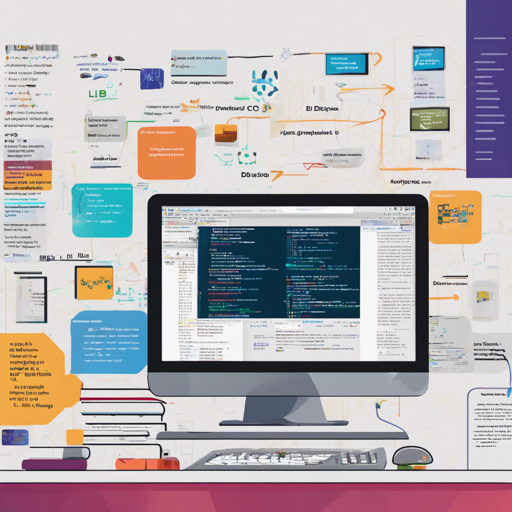Dlib is a state-of-the-art C++ toolkit packed with machine learning algorithms and tools that help developers forge complex software solutions to tackle real-world challenges. This guide will walk you through the steps to compile Dlib, run example programs, and even utilize its Python API.
Getting Started with Dlib
Your journey begins with obtaining the Dlib library. Head over to the main project documentation and API reference at dlib.net.
Compiling Dlib C++ Example Programs
Now, let’s compile the example programs provided with the Dlib library.
- Navigate to the examples folder:
- Type the following commands in your terminal:
mkdir build; cd build; cmake .. ; cmake --build .This will create a build directory and compile all the examples.
Utilizing AVX Instructions for Faster Performance
If your CPU supports AVX instructions, you can enable these for better performance:
mkdir build; cd build; cmake .. -DUSE_AVX_INSTRUCTIONS=1; cmake --build .Visual Studio Users: Compile in 64-bit Mode
It’s important to note that Visual Studio defaults to 32-bit. To use 64 bits, perform the following:
cmake .. -G "Visual Studio 14 2015 Win64" -T host=x64This ensures a more modern compilation that aligns with today’s software requirements.
Compiling Your Own C++ Programs Using Dlib
The examples folder has a helpful CMake tutorial guiding you through the steps. For more detailed instructions, visit the dlib website.
Using Vcpkg for Easy Installation
If you prefer a simplified installation process, the vcpkg dependency manager allows you to install Dlib seamlessly with CMake integration:
vcpkg install dlibCompiling the Dlib Python API
For Python users, start by setting up the required build environment:
python -m venv venv
pip install buildNext, compile Dlib and install it in your Python environment:
python -m build --wheel
pip install dist/dlib-version.whlYou can also download Dlib using PyPi directly:
pip install dlibRunning the Unit Test Suite
To ensure everything is working correctly, you can compile and run the Dlib unit test suite:
cd dlib/test
mkdir build
cd build
cmake ..
cmake --build . --config Release
dtest --runallKeep in mind, on Windows, your compiler may store the test executable in a subfolder named Release — so navigate there before executing the tests.
Troubleshooting Tips
- If you encounter an error during the compilation process, ensure that you have all necessary dependencies installed.
- Double-check that your compiler supports the required standards for Dlib.
- For missing library errors, consider reinstalling Dlib or checking the installation path.
For more insights, updates, or to collaborate on AI development projects, stay connected with fxis.ai.
Licensing Information
Dlib is licensed under the Boost Software License. You can utilize Dlib in various capacities, including closed-source commercial software. The full license details are available in dlib/LICENSE.txt.
At fxis.ai, we believe that such advancements are crucial for the future of AI, as they enable more comprehensive and effective solutions. Our team is continually exploring new methodologies to push the envelope in artificial intelligence, ensuring that our clients benefit from the latest technological innovations.

